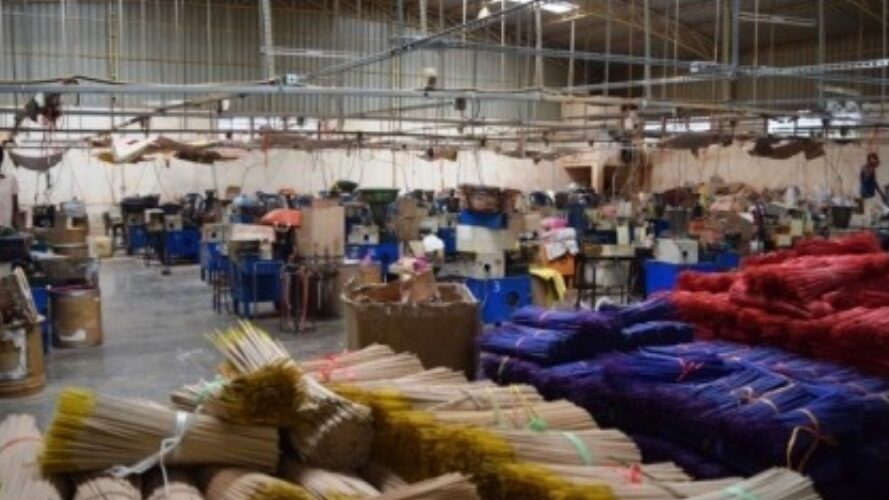Slavery Rescue Reveals Stench in India’s Incense Industry
Labor Trafficking
One-hundred-and-fifty-five people who were held as forced labor slaves in incense factories for up to three years are now free. Families were separated and trafficked from as far away as Nepal, and they were kept under 24-hour surveillance with guard dogs at night.
“We suffered here worse than convicts in jail,” a 21-year-old laborer from the northeastern state of Assam said. “When I arrived here the owner took away my phone and wallet. He kept telling us that he will pay us before we leave to Assam. But when I told him I want to leave, he beat me up and threatened me. I have not stepped out or been in touch with my family since I came here. I have been waiting to somehow escape but there was no way.”
One Rescue Leads to the Next
The back-to-back rescue operations on May 28 began when IJM received a call from a police officer, a Sub Inspector of Bangalore Urban. The officer had been trained by IJM on forced labor slavery, and he called IJM for technical assistance with a planned operation at one incense factory. IJM mobilized a team to meet the police and local officials at the factory right away.
After the rescue, each man shared about a harsh life of slavery and imprisonment. The 107 laborers were trafficked more than 800 miles to Bangalore from Nepal and far away states including Assam, Jharkhand and West Bengal. They were forced to work seven days a week from 6am until 2am, some having to handle dangerous chemicals. The laborers also reported physical abuse by the owner, and were prohibited from leaving the factory even when in need of medical attention. All 107 people shared a single room with one toilet.
As the man shared about the harsh conditions in the factory, two said their brothers were being held in a similar factory in the neighboring state of Tamil Nadu. Miraculously, there were two IJM social workers close to this exact location in Tamil Nadu. IJM worked quickly to inform the Anti-Human Trafficking Unit and local officials, and by 7:30pm were ready to attempt the rescue.
A Discovery in the Dark
A power cut in the village meant it was pitch dark, and the rescue team struggled to locate the factory. When they finally arrived, it appeared deserted. But half-eaten food still warm on the plates and fans still whirring in the thick humid air suggested the slaves had been rushed away in a hurry. It seemed that the factory owners knew rescue was on its way.
“As we searched the facility I was totally flabbergasted, shocked, amazed. There was no electricity; the room was pitch dark. I was using the flashlight on my phone, searching the factory but finding nothing. Eventually, in one of the smaller rooms, I saw a bunch of people crammed together in the dark,” said Sam George, IJM Director of Aftercare.
“As I spoke to them, Praisey, our social worker, yelled to me from another room, "Sam! You need to see this!" I rushed to where she was and was shocked again. Using my phone light through the doorway all I could see was hundreds of eyes—like little animals in the dark—reflecting back at me. I was so confused. As my eyes adjusted I realized they were people!”
Forty-eight forced laborers were rescued from this second factory in Tamil Nadu and are expected to return home in the coming days.
Meanwhile in Bangalore, the IJM team focused on aftercare for the laborers. The 107 laborers have received release certificates from the government that ensure their freedom. They will return home next week.
The case against the suspects continues. The owner of the Bangalore incense factory was arrested, along with one trafficker and three employees. All are being held in custody under Indian Penal Code section 370 and the Bonded Labour System Abolition Act.
Partner with us to see the end of slavery. Learn how by watching Gary Haugen's TED Talk.